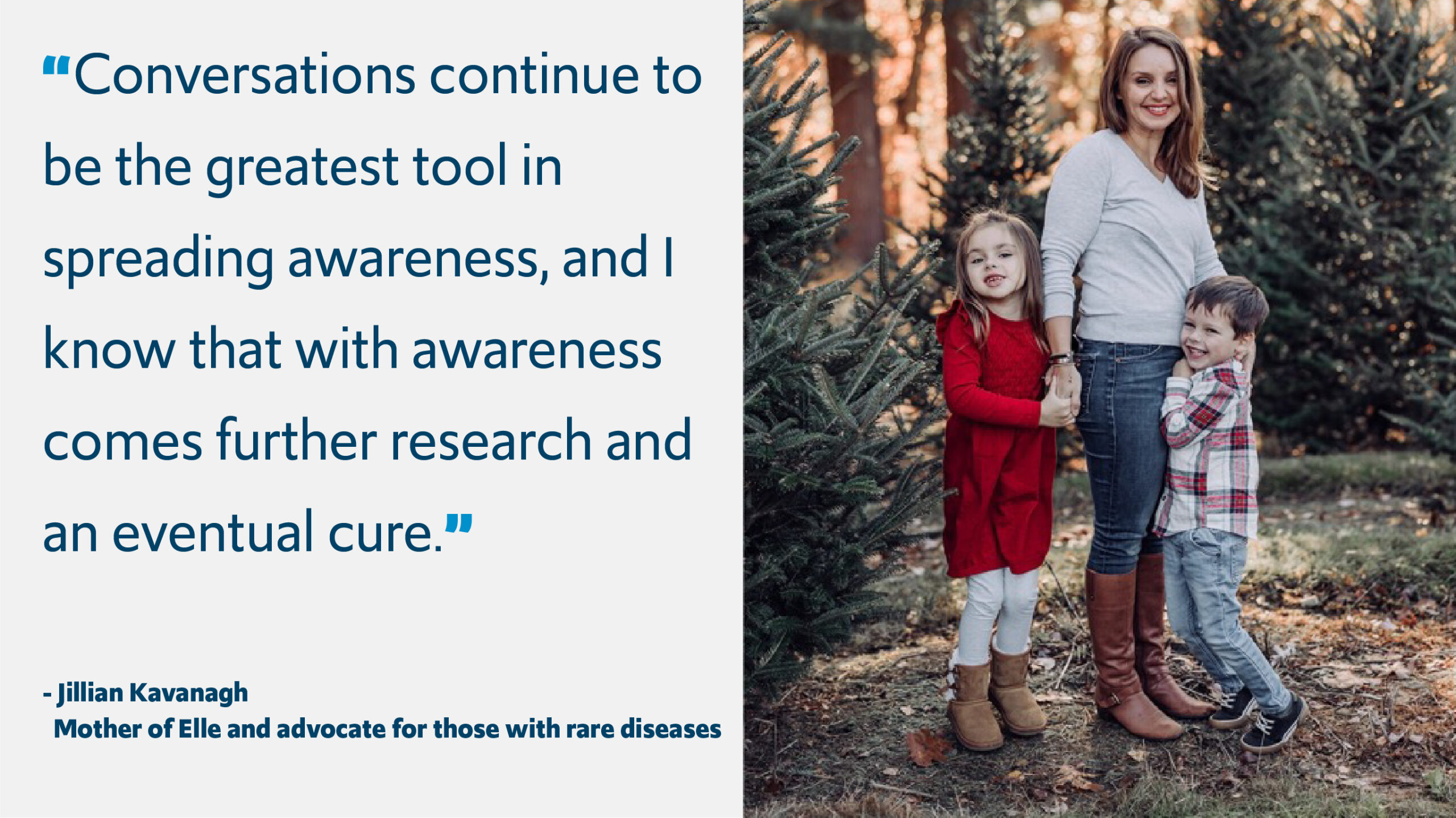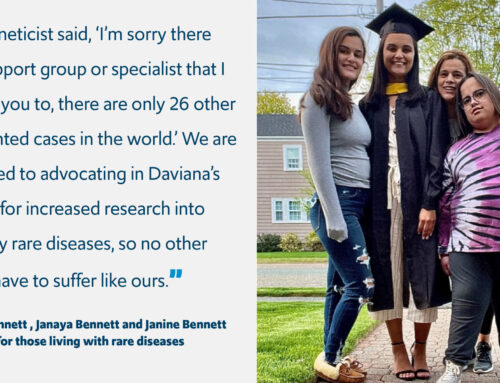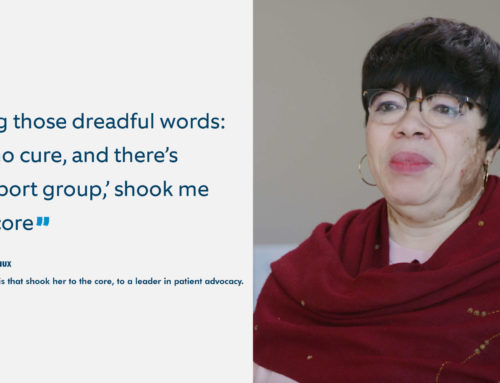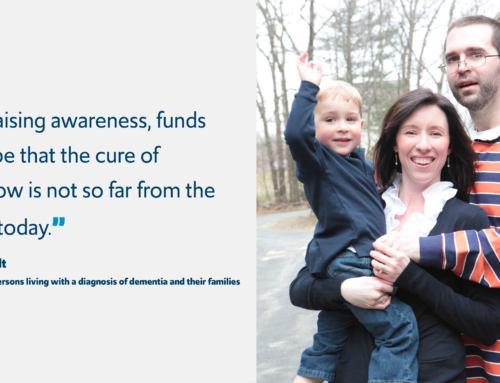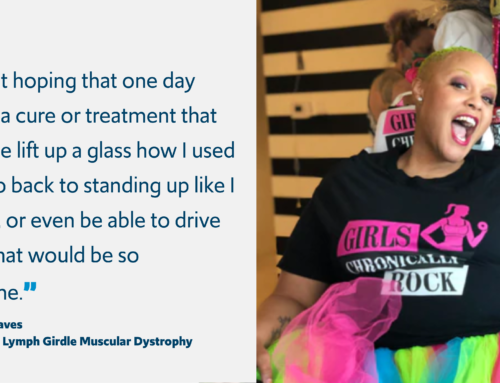On a hot day in July of 2015, we welcomed our beautiful baby girl, Elle, to our family. As we navigated our way through the challenges of being first-time parents, we started to notice that she was having a hard time hitting her milestone goals. Our pediatrician suggested early intervention services for torticollis and gross motor delay. Despite these resources, Elle still struggled. Given that she was such a pleasant, happy and easy baby, we had a difficult time justifying that something was “wrong.” Eventually, our search led us to Boston Children’s Neurology, where electroencephalogram testing found that Elle was having seizures. Her presentation was subtle and easily missed. Since there was no known epilepsy in either of our families, Elle’s providers suggested genetic testing. Obtaining insurance approval for the testing was arduous, and we were left with denial after denial. Fortunately, Boston Children’s was able to cover the cost of genetic testing after enrolling in a research trial. Testing revealed a mutation within the CSNK2A1 gene, and she received a diagnosis of Okur Chung Neurodevelopmental Disorder (OCNDS), which was found to be de novo – a mutation wasn’t transmitted by either parent. We were provided a couple of handouts and contact information for the CSNK2A1 Foundation. Since the disorder was only recently found in 2016, limited information was available. When we learned that cardiac, gastrointestinal, endocrine, dental and vision issues can present with this disorder, we quickly grew Elle’s treatment team and found that many of the issues were ruled out.
I had the privilege of working with the CSNK2A1 Foundation as a member of the Parent Advisory Board and then a founding member of the Compassion Initiative. The goal of the Compassion Initiative is to bridge the gap between the medical community and the OCNDS community. My experience as a nurse practitioner as well as a mother to a child with a rare disease provides me with unique insight for both raising awareness and providing support for families. The road to diagnosis is consistently difficult and varies depending on the geographical location. The foundation also led me to MassBio, which provides connection with state officials, webinars and numerous other resources.
Today, Elle is a happy, engaging, sweet 7-year-old. She loves school, is loved by her teachers and classmates, and receives physical therapy, occupational therapy and speech services. Elle is still followed by her neurologist and sees her other specialists periodically for screening purposes. I continue to work with the CSNK2A1 Foundation as a member of the Compassion Initiative. This year, I have spoken with multiple academic institutions and medical students/residents about OCNDS. A bill has also been filed to make April 5th OCNDS Awareness Day in the Commonwealth of Massachusetts. Conversations continue to be the greatest tool in spreading awareness of this condition, and I know that with awareness comes further research and an eventual cure.
Mother of Elle and advocate for those with rare diseases

